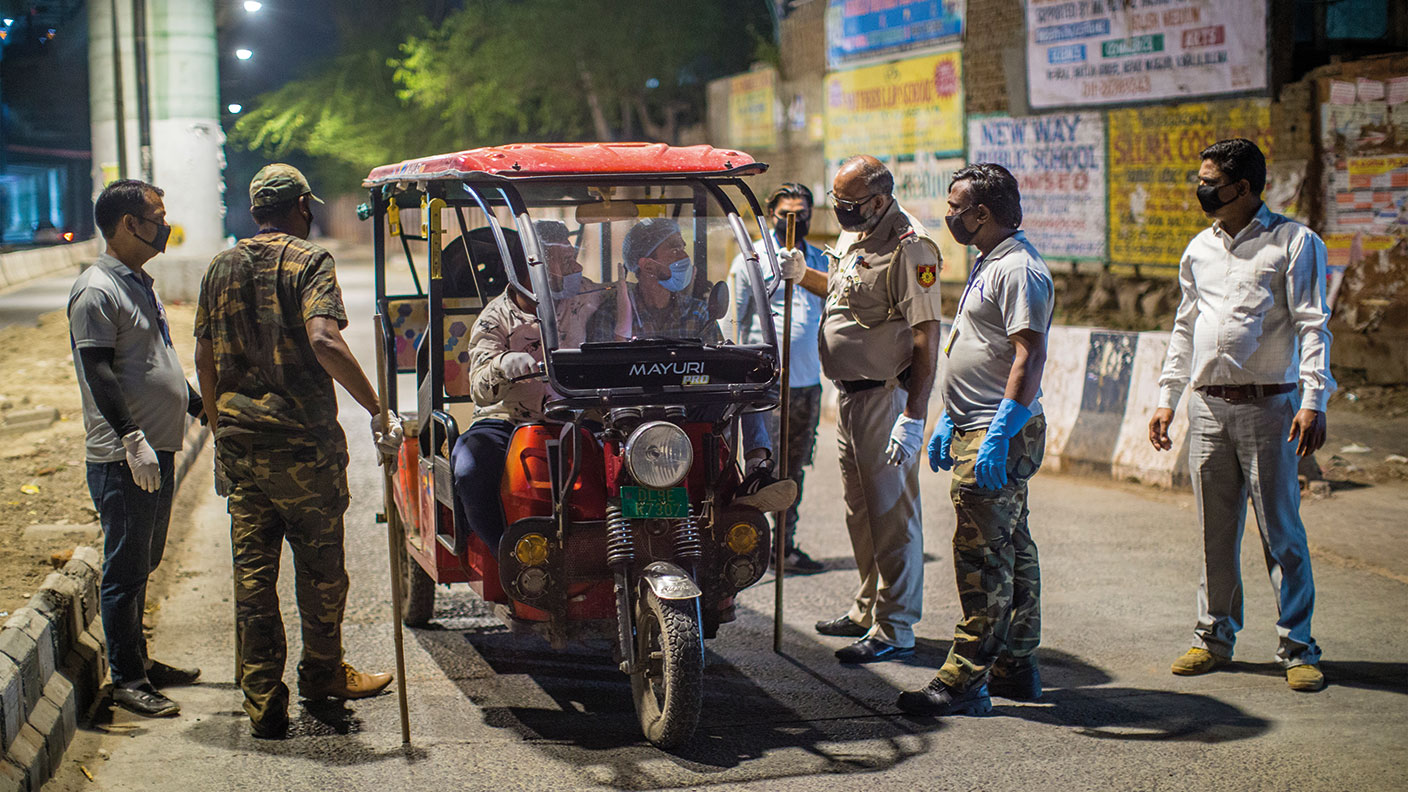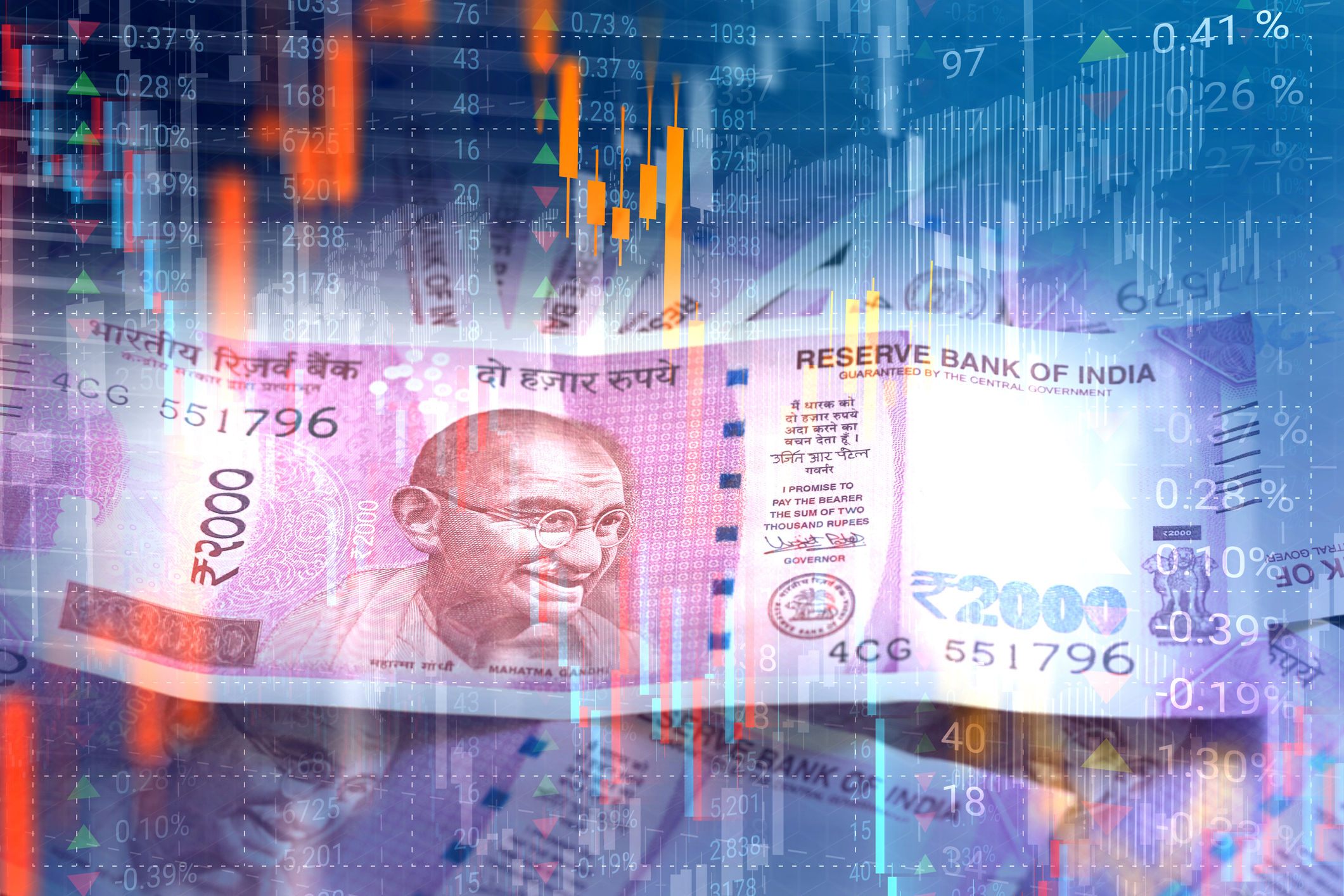India’s lockdown: high stakes for Narendra Modi
By putting 1.3 billion people on lockdown, India's PM, Narendra Modi, could either cement his reputation as a powerful, reforming leader, or trigger widespread upheaval.

Get the latest financial news, insights and expert analysis from our award-winning MoneyWeek team, to help you understand what really matters when it comes to your finances.
You are now subscribed
Your newsletter sign-up was successful
Want to add more newsletters?

Twice daily
MoneyWeek
Get the latest financial news, insights and expert analysis from our award-winning MoneyWeek team, to help you understand what really matters when it comes to your finances.

Four times a week
Look After My Bills
Sign up to our free money-saving newsletter, filled with the latest news and expert advice to help you find the best tips and deals for managing your bills. Start saving today!
“For 21 days, forget what going out means.” Indian prime minister Narendra Modi put his 1.3 billion people on lockdown last week. Officials had become alarmed that a rapid rise in cases of Covid-19 would overwhelm India’s fragile health-care system, says Abhishek Vishnoi on Bloomberg. Policymakers promised to step in with a $22.6bn spending plan, while the Reserve Bank of India has cut interest rates by 0.75% down to 4.4%. The local BSE Sensex Index still fell by 28.6%% between January and March, its worst-ever quarter.
The stakes for Modi are high, says Sadanand Dhume in The Wall Street Journal. A successful fight against Covid-19 will cement his reputation as a powerful, reforming leader. Yet a serious outbreak could trigger “widespread and unpredictable social and political upheaval”.
Narendra Modi has form when it comes to making bold announcements, notes Amy Kazmin in the Financial Times. In 2016 he invalidated 86% of the country’s currency overnight in an attempt to crack down on tax evasion, but the state was unprepared for the ensuing chaos. This time the pattern is repeating itself. The urban middle class had been advised to rely on e-commerce, but nobody told the police, who have resorted to “beating couriers making deliveries and shutting logistics warehouses”. The plight of India’s army of casual labourers, who rely on daily wages to eat, is far worse. Modi failed to explain how millions of people were supposed to get by for three weeks without work. The informal sector which employs these workers is the backbone of the Indian economy.
MoneyWeek
Subscribe to MoneyWeek today and get your first six magazine issues absolutely FREE

Sign up to Money Morning
Don't miss the latest investment and personal finances news, market analysis, plus money-saving tips with our free twice-daily newsletter
Don't miss the latest investment and personal finances news, market analysis, plus money-saving tips with our free twice-daily newsletter
On a price/earnings ratio of 18 the Indian market is now far more reasonably priced than in January. Yet given massive uncertainty about the management of the ongoing lockdown and the epidemic, it may be better to wait and see before jumping in.
Get the latest financial news, insights and expert analysis from our award-winning MoneyWeek team, to help you understand what really matters when it comes to your finances.
Alex is an investment writer who has been contributing to MoneyWeek since 2015. He has been the magazine’s markets editor since 2019.
Alex has a passion for demystifying the often arcane world of finance for a general readership. While financial media tends to focus compulsively on the latest trend, the best opportunities can lie forgotten elsewhere.
He is especially interested in European equities – where his fluent French helps him to cover the continent’s largest bourse – and emerging markets, where his experience living in Beijing, and conversational Chinese, prove useful.
Hailing from Leeds, he studied Philosophy, Politics and Economics at the University of Oxford. He also holds a Master of Public Health from the University of Manchester.
-
 New PM Sanae Takaichi has a mandate and a plan to boost Japan's economy
New PM Sanae Takaichi has a mandate and a plan to boost Japan's economyOpinion Markets applauded new prime minister Sanae Takaichi’s victory – and Japan's economy and stockmarket have further to climb, says Merryn Somerset Webb
-
 Plan 2 student loans: a tax on aspiration?
Plan 2 student loans: a tax on aspiration?The Plan 2 student loan system is not only unfair, but introduces perverse incentives that act as a brake on growth and productivity. Change is overdue, says Simon Wilson
-
 Modi’s reforms set Indian stocks on fire
Modi’s reforms set Indian stocks on fireIndian stocks pass a new milestone, but global fund managers are holding back. Are there signs of overheating?
-
 Halifax: House price slump continues as prices slide for the sixth consecutive month
Halifax: House price slump continues as prices slide for the sixth consecutive monthUK house prices fell again in September as buyers returned, but the slowdown was not as fast as anticipated, latest Halifax data shows. Where are house prices falling the most?
-
 Rents hit a record high - but is the opportunity for buy-to-let investors still strong?
Rents hit a record high - but is the opportunity for buy-to-let investors still strong?UK rent prices have hit a record high with the average hitting over £1,200 a month says Rightmove. Are there still opportunities in buy-to-let?
-
 Pension savers turn to gold investments
Pension savers turn to gold investmentsInvestors are racing to buy gold to protect their pensions from a stock market correction and high inflation, experts say
-
 Where to find the best returns from student accommodation
Where to find the best returns from student accommodationStudent accommodation can be a lucrative investment if you know where to look.
-
 The world’s best bargain stocks
The world’s best bargain stocksSearching for bargain stocks with Alec Cutler of the Orbis Global Balanced Fund, who tells Andrew Van Sickle which sectors are being overlooked.
-
 Revealed: the cheapest cities to own a home in Britain
Revealed: the cheapest cities to own a home in BritainNew research reveals the cheapest cities to own a home, taking account of mortgage payments, utility bills and council tax
-
 UK recession: How to protect your portfolio
UK recession: How to protect your portfolioAs the UK recession is confirmed, we look at ways to protect your wealth.